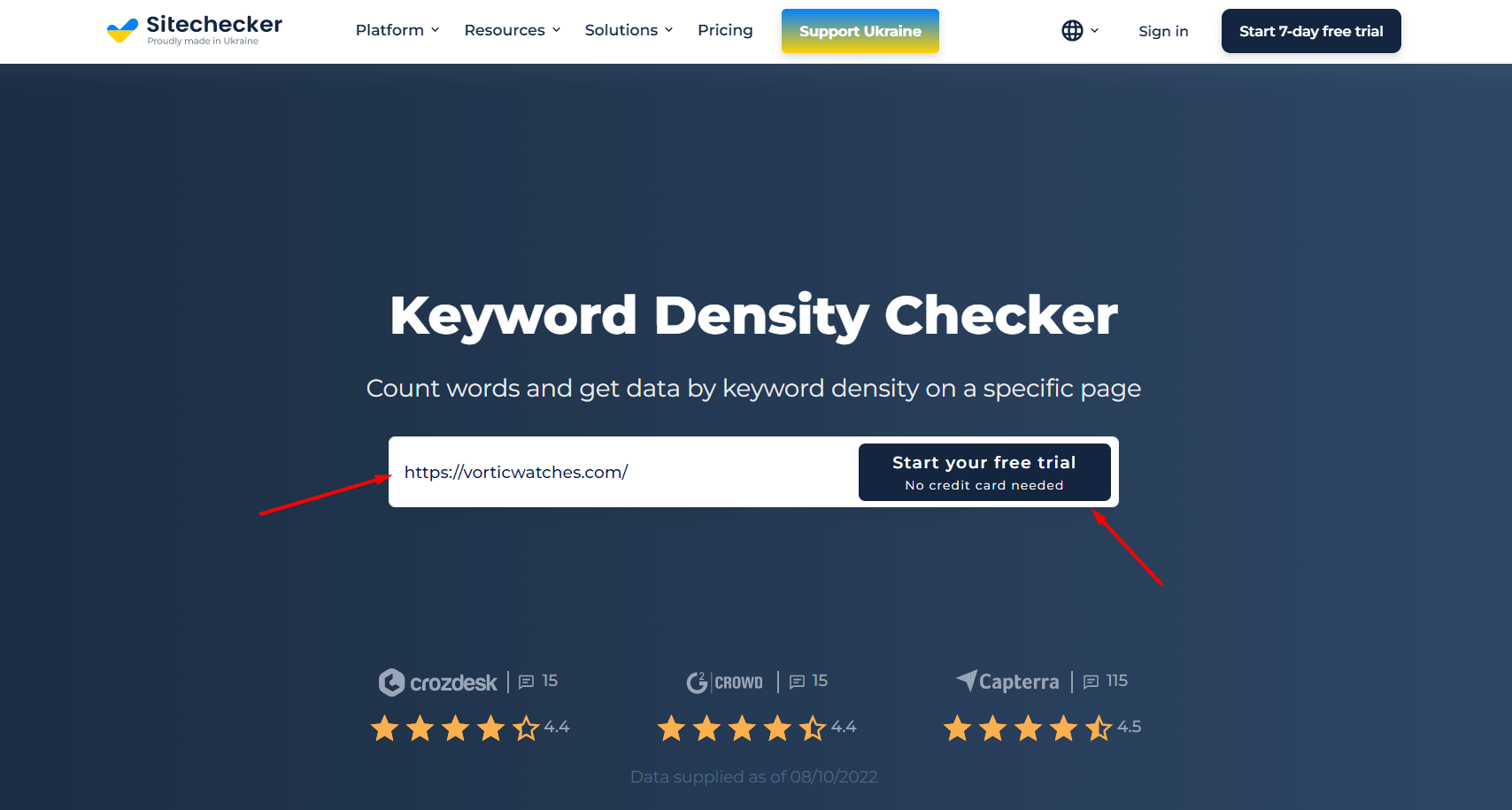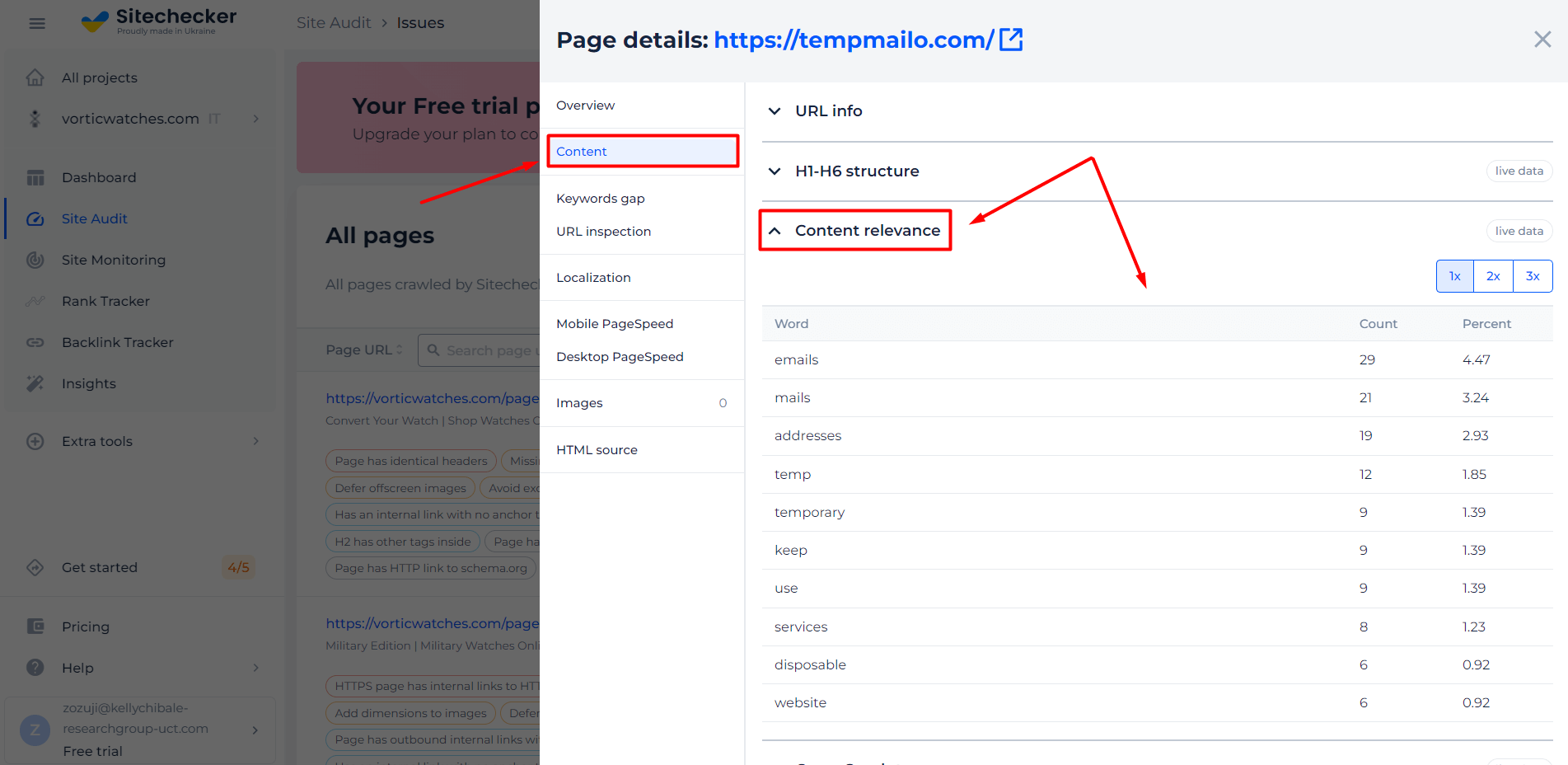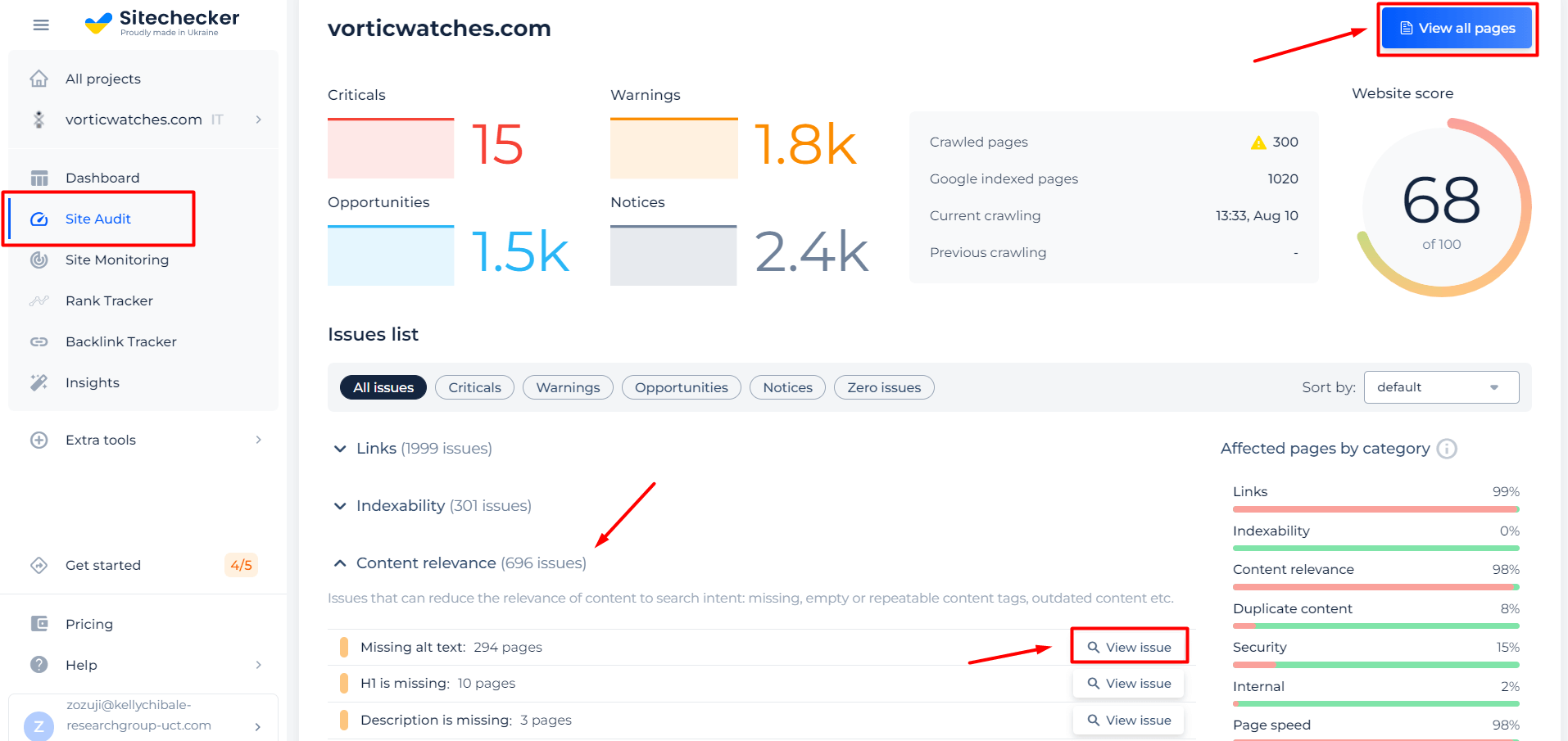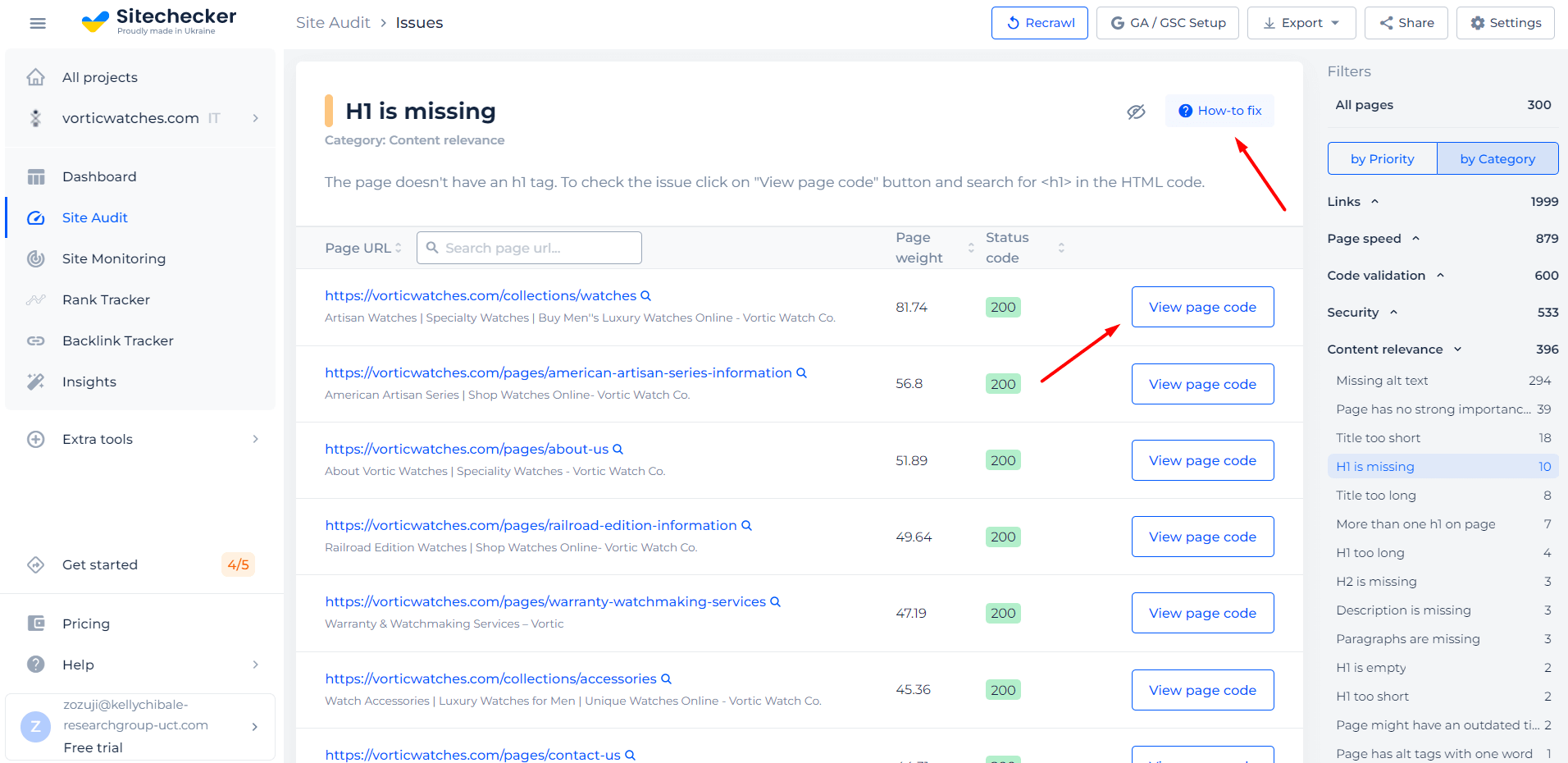Content owners should focus on two factors. The first is the user factor, which is significant because text content is designed for your readers, clients, or potential users. The second is the search engines, which can show your site’s optimized status by keywords.
Nevertheless, in the case of using keywords, danger creeps in. You can use so many of them in your text that it will be difficult for a simple user to perceive the data. And even if you have tried to create useful content for users, you may overload it with keywords to optimize the text for search engine robots.
Whereas search engine robots couldn’t tell if there were too many keywords a decade ago, they’ve got smarter now. Site evaluation and search engine ranking algorithms are improving every day. Today, search bots can recognize the percentage of queries on the page of your site. SEO specialists use special software to check the appropriate number of keywords.
How do you determine the right number of words for SEO? You need to consider the density and the relevance of the queries. Analyze the Google output, snippets, related search queries, use keyword checking programs. This way, you can figure out what number of keys would be safe for your text.
We have developed a useful and free tool called Keyword Density Checker. If you want to know the number of words, you can use our web page word counter tool. With its help, you will improve your query density and count keywords. It will make your text attractive for users and search engines simultaneously.
How to Use the Keyword Density Checker?
So, let’s take a closer look at how you can use Density Checker for your tasks. Keyword density is one of the important ranking factors, so you should pay attention to their quantity.
If a keyword occurs a sufficient number of times in an article, your site will be more relevant in the rankings. Our tools will help you analyze and determine if you are using too many keywords in your articles. In two simple steps and completely free, you can analyze this parameter further to improve your content for users and search engines.
Step 1: Insert your URL and start free trial
To start using the tool, simply enter your URL into the box below. You can start using it for free immediately, and there is no need to provide a credit card or any other payment information. Start a free trial is quick and easy, and you can even use your existing Google or Facebook account if you prefer.

Step 2: Interpreting the keyword density analyzer results
As soon as the analysis is finished, our tool will immediately show all density information about the queries on your page.
Our best Keyword Density Checker will show the information for your URL on the on page audit result page in the “Content” category in block “Content relevance”.
There are three columns: word (that you can switch by 1x word, 2x and 3x words), count and percent of density.

After analysis, you may see that the percentage of keyword usage is either too low or too high. You can improve your content base on results.
Our Keyword Density Report Special Features
If you create a trial account, you will get a free full-site audit. This will allow you to see all the content issues on your site and find out which URLs are affected. To do this, simply go to “Site audit” and click “View issues” for one of the issues in the “Content relevance category.”

Once you’ve done that, you can check the issues in the code for each URL and follow the “How to fix” instructions to solve the problem.

Checking keyword density is important but not enough to up SERP positions!
Crawl your site and find out all kind of issues that can hart your users or your website SEO.
How is Keyword Density Calculated?
There is a formula of ratio for density to help you understand how to calculate the percentage of keywords used. You can use it to calculate the ideal amount for your site: divide the number of keywords by the total number of words and multiply by 100. According to statistics, a good result of frequency is between 4% and 8%. Remember that there is no adequate checker or calculator for the optimal density of queries. This number is very individual for each site and each subject. You can you Copywritely for this tasks.
Use the key phrase at least once. Use incomplete keywords as well. Some SEO experts argue that synonyms and different forms of words still affect the content value.
Cases When Free Keyword Density Checker Tool is Needed
You can create a quality article, but a huge number of keywords will throw all your efforts into oblivion. Let’s see what diversity cases you can use Keyword Density Checker for.
First, you can check the percentage of keywords in the text content on your site. It is the most proper way to use a Density finder but by no mean the only way. You can also use our tool to search for keywords from your competitors. That way, you can find keywords out and search terms your competitors are promoting their content for. It will help in your marketing strategy.
Several Tips on How to Reach an Optimal Keyword Density
Different search engines evaluate the number of keywords in the text content differently. And you should take into account the peculiarities of these requirements for promotion for each social network.
There is no optimal limit to keyphrase because it is too individual. There is no perfect density, but you can target search engine recommendations. You don’t need to try to reach the perfect number. But there are some useful tips for you to use words more productively. Follow their advice to get a higher ranking in search engine rankings.
- Stop using too many queries. It’s true that ten years ago, as we mentioned earlier, you could use a lot of keywords and get into the top search engine results. Nevertheless, search engine algorithms have become smarter and can recognize and label an overabundance of keywords as spam. Use Keyword Tracker to keep track of your keyword calculation.
- Don’t optimize one article for multiple queries at once. It is a bad idea and may not be an effective strategy. It is better to create strength articles for different search queries. This way, you can get more attention from users and more traffic from search engines.
- Make your texts as high-quality and interesting as possible. Put keys in the background. Remember that the most necessary thing for you should be the quality of your text. The more fascinating and useful the text to users, the more they will finish reading it to the end and the longer they will stay on the pages of your site. After you have finished working on your texts, analyze the text in Density Checker and note how well you used the right keywords.
Check out what Google says about this.
What is keyword density?
What is keyword density in SEO?
How to deal with keyword stuffing?
How to search for a word on a web page?
-
- Open a page in Chrome.
- At the top right, select More. Find.
- At the top right, enter your search term.
- Matches appear highlighted in yellow.
Or you can paste Ctrl + F.






